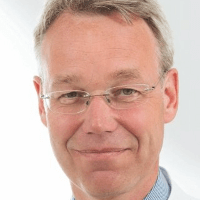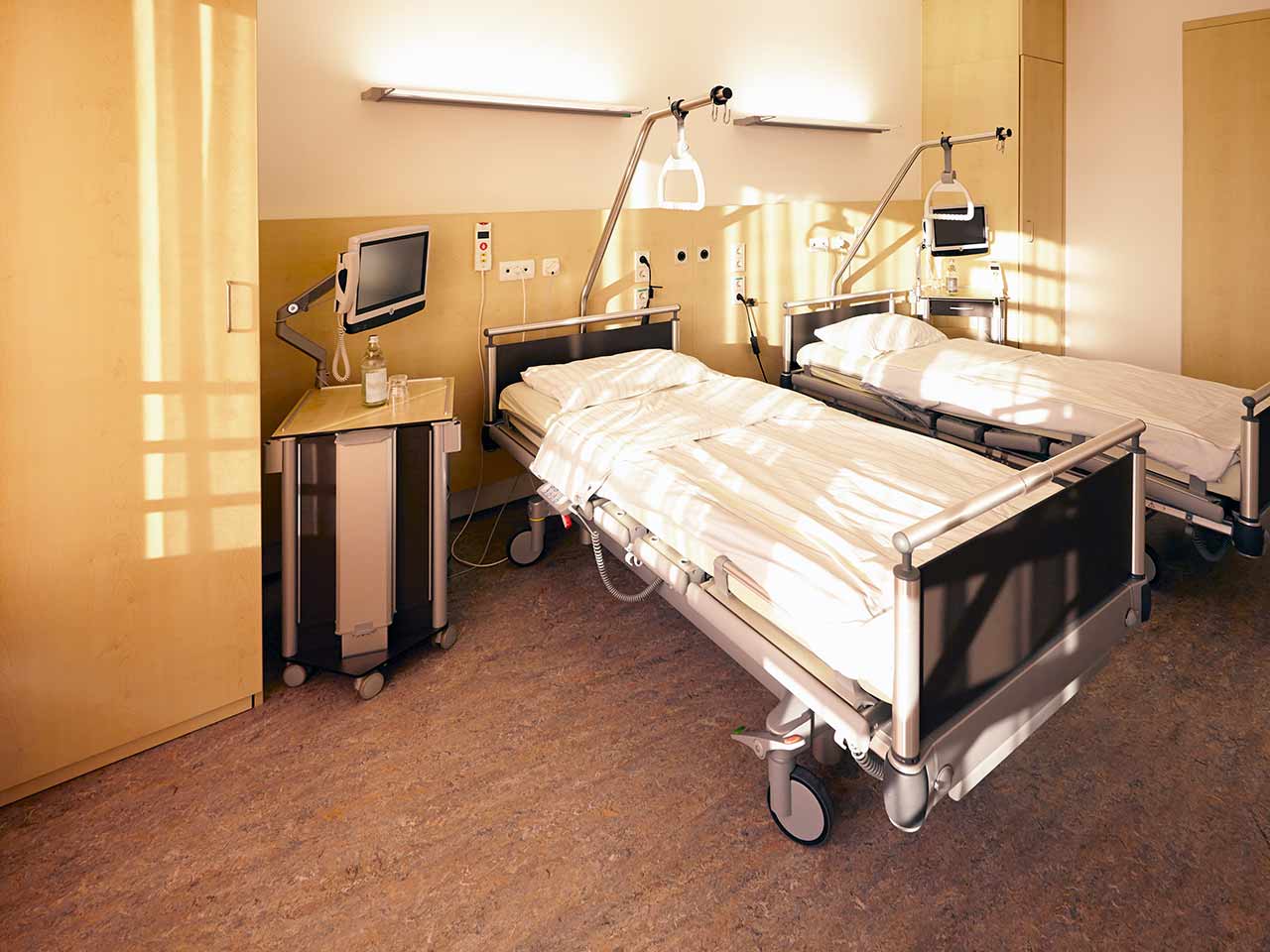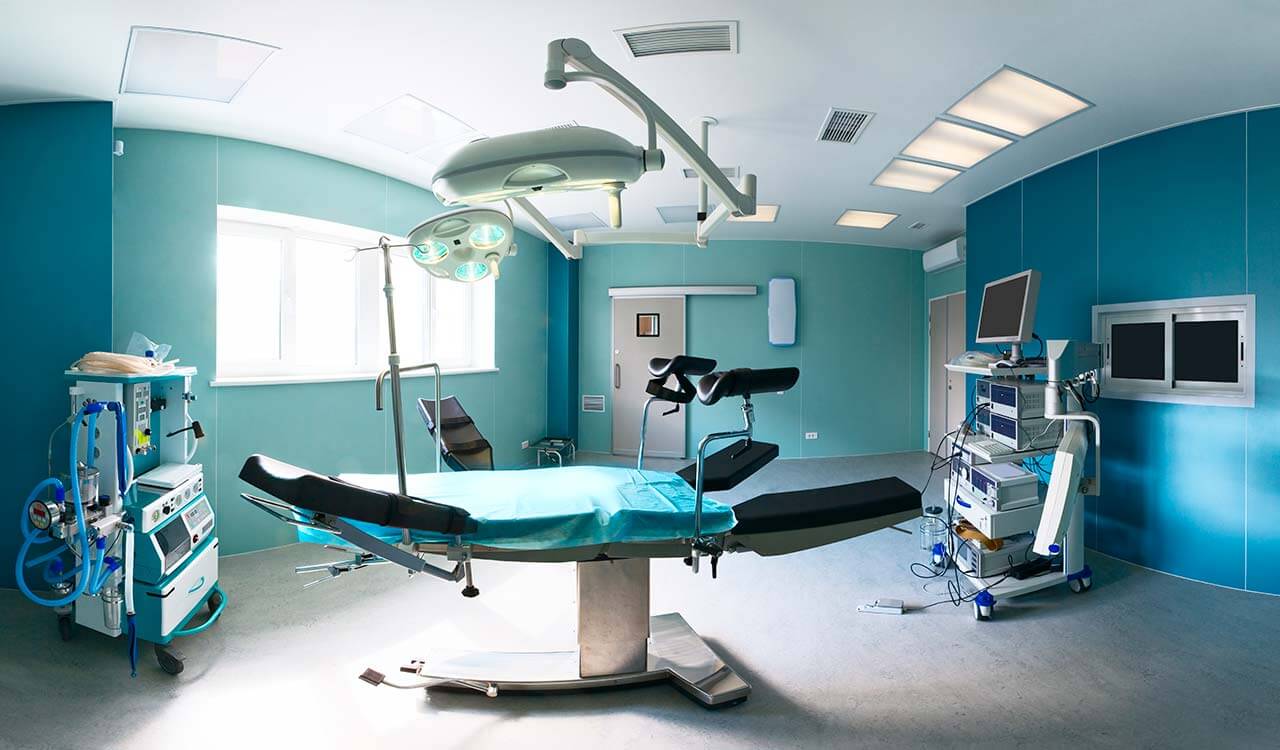
The program includes:
- Initial presentation at the clinic
- clinical history taking
- review of medical records
- general clinical examination
- extensive laboratory tests:
- complete blood count
- biochemical blood test
- inflammation markers (CRP, ESR)
- blood coagulation analysis (aPTT, PT, INR)
- bacteriological analysis, blood culture for sterility
- serological analysis (PCR, IFA)
- ultrasound and X-ray examination
- electrocardiography (ECG)
- echocardiography (EchoCG)
- miocardial biopsy with histological study
(if clinically indicated, additional cost is 2500 €) - nursing services
- services of all leading experts
- explanation of individual treatment plan
Required documents
- Medical records
- Echocardiography (if available)
Service
You may also book:
 BookingHealth Price from:
BookingHealth Price from:
About the department
The Department of Cardiology at the Helios Hospital Hildesheim provides all the options of modern medicine for the diagnostics and treatment of various cardiovascular diseases. The patients with myocardial infarction and acute coronary syndrome receive medical care in the Chest Pain Unit certified by the German Cardiac Society. In addition, the department has a modern Cardiac Catheterization Laboratory, which performs catheter assessment of the state of the myocardium, heart valves and coronary arteries, as well as interventions for coronary artery stenosis (balloon dilatation and stent implantation). The department's cardiologists are distinguished by their successful experience in radiofrequency catheter ablation for the treatment of cardiac arrhythmias. The specialists of the medical facility annually admit more than 4,000 patients, so the patients can be sure of the exceptional professionalism of cardiologists and the effectiveness of medical care. The department is headed by Prof. Dr. med. Juergen Tebbenjohanns.
The progressive Cardiac Catheterization Laboratory provides the full range of diagnostic procedures to assess the condition of the myocardium, heart valves and coronary vessels. Such tests involve the use of a catheter (a flexible and hollow plastic tube with a small diameter), which is introduced into the vascular flow through a puncture in the femoral artery and moves along the aorta to the heart chambers. The use of a contrast agent allows the doctors to obtain the images of the coronary arteries and reveal stenosis or obstruction in them. The therapeutic procedures are also successfully performed in the Cardiac Catheterization Laboratory – percutaneous transluminal coronary angioplasty and stent implantation. Heart rhythm disorders (arrhythmias) are treated with drugs or radiofrequency catheter ablation. Radiofrequency ablation is performed using a thin flexible guiding catheter, which is inserted through a puncture on the femoral artery and gradually moves towards the pathological focus in the heart, which causes the arrhythmia. A radiofrequency pulse is supplied through the guiding catheter, which irreversibly destroys the pathological tissue area. Radiofrequency catheter ablation is indicated for the patients with atrial fibrillation, atrial tachycardia, atrial flutter, life-threatening ventricular arrhythmia, premature ventricular repolarization syndrome, etc.
State-of-the-art Chest Pain Unit serves for the treatment of patients with acute coronary syndrome and myocardial infarction. Since September 2017, the unit has been certified in accordance with the standards of the German Cardiac Society, which confirms the highest level of quality of the services provided. The Chest Pain Unit is equipped with systems for electrocardiography and other tests to assess the condition of the heart. After the diagnostic examination, cardiologists provide a complex of therapeutic measures aimed at normalizing the patient's condition and preventing irreversible pathological changes. The patients in a severe condition remain in the department's specialized Intensive Care Unit.
The department's range of diagnostic and therapeutic services includes:
- Diagnostic tests
- Echocardiography
- Transthoracic echocardiography
- Transesophageal echocardiography
- Stress echocardiography
- Electrocardiography
- Spiroergometry
- 24-hour blood pressure monitoring
- Electrophysiological tests
- Cardiac MRI
- Diagnostic cardiac catheterization
- Echocardiography
- Therapeutic techniques
- Drug therapy
- Catheter procedures
- Percutaneous transluminal coronary angioplasty
- Coronary artery stent implantation
- Radiofrequency catheter ablation
- Left atrial appendage closure
- Emergency cardiac care
- Other medical services
Curriculum vitae
Higher Education and Professional Career
- 1983 - 1989 Study of Human Medicine at the Heinrich Heine University Duesseldorf and at the Rhenish Friedrich Wilhelm University of Bonn.
- 1989 - 1996 Preparation for board certification in Internal Medicine at the University Hospital Bonn.
- 1996 Senior Physician in the Department of Cardiology and Angiology at the Hanover Medical School and Senior Physician at the Working Group on Rhythmology at the Hanover Medical School.
- 1998 Managing Senior Physician.
- 1998 Foundation of the "Discussion Group on Rhythmology in Hannover".
- 1999 Habilitation.
- 1999 Board certification in Cardiology.
- 2002 Professorship.
- 2002 Chief Physician of the Department of Cardiology at the Helios Hospital Hildesheim.
- 2004 Deputy Representative of the "Arrhythmia" Working Group of the German Cardiac Society (DGK).
- 2006 Deputy Medical Director of the Helios Hospital Hildesheim.
- Since 2006 Head of the "Rhythmology" Training Course of the German Cardiac Society (DGK).
- 2007 Representative of the "Pacemaker and Arrhythmia" Joint Working Group of the German Cardiac Society (DGK).
- Since 2015 Medical Director of the Helios Hospital Hildesheim.
Photo of the doctor: (c) Helios Kliniken GmbH
About hospital
The Helios Hospital Hildesheim positions itself as an advanced provider of high-quality medical services at the European level. The medical facility is an Academic Hospital of the Hannover Medical School, thanks to which it can successfully introduce the very latest medical achievements into clinical practice. The hospital is distinguished by the excellent quality of diagnostics, highly effective treatment of pathologies of any severity and the best patient care based on understanding and humane attitude. The history of the medical complex dates back to 1838, so it carefully honors traditions, but at the same time the hospital actively uses innovative diagnostic and treatment methods. The medical team of the hospital consists of more than 1,450 people. The hospital employs highly qualified doctors who are rightfully proud of their treatment outcomes.
The medical facility has 579 beds. The team of doctors working at the hospital treats more than 28,000 inpatients and about 80,000 outpatients every year. The patients from foreign countries often undergo diagnostics and treatment in the hospital, which confirms the excellent reputation of the medical center in the international arena.
The hospital offers highly specialized departments with different medical focuses, including oncology, cardiology, gastroenterology, gynecology, dermatology, otolaryngology, general and abdominal surgery, plastic and aesthetic surgery, traumatology, etc. Many medical fields are awarded with prestigious certificates, including German Cancer Society (DKG) certification, IQM certification, and others.
Photo: (с) depositphotos
Accommodation in hospital
Patients rooms
The patients of the Helios Hospital Hildesheim live in spacious and light rooms. The furnishings of a standard patient room includes an automatically adjustable bed with an orthopedic mattress, a bedside table, and a wardrobe for storing things. All patient rooms have telephone, radio and TV, as well as free Wi-Fi. For maximum convenience of patients, each room has an ensuite bathroom with shower and toilet.
If desired, the patient can stay in an enhanced-comfort room. Such rooms are distinguished by a more sophisticated design, and are additionally equipped with a safe, a minifridge and upholstered furniture.
Meals and Menus
The patients of the hospital are offered tasty and varied meals. Diet and vegetarian menus are also available. If the patient follows a special diet recommended by the attending physician, he will be provided with food cooked from approved products.
Breakfast is served buffet style: eggs, various types of cheese, sausage, buns, jam, vegetables. There are three set menus to choose from for lunch. Dinner is also served buffet style.
In addition, the hospital has a cozy cafe called Leckeria where one can have a delicious snack. The range of dishes includes light salads, hearty set meals, snacks, sandwiches, cakes, as well as tea, coffee and soft drinks. The terrace is open in the summertime.
Further details
Standard rooms include:
Television
All patient rooms have a TV set. The TV can be used with headphones – the patients can use their own headphones or ask for the headphones from the staff.
Religion
The patient can talk with a Christian priest at any time. Divine services are held every Sunday at 10 am (on the ground floor).
Other religious services are available upon request.
Accompanying person
During the inpatient program, the accompanying person can stay with the patient in a patient room or at a hotel of his choice. Our managers will help you choose the most suitable option.
Hotel
During the outpatient program, the patient can stay at a hotel of his choice. Our managers will help you choose the most suitable option.




